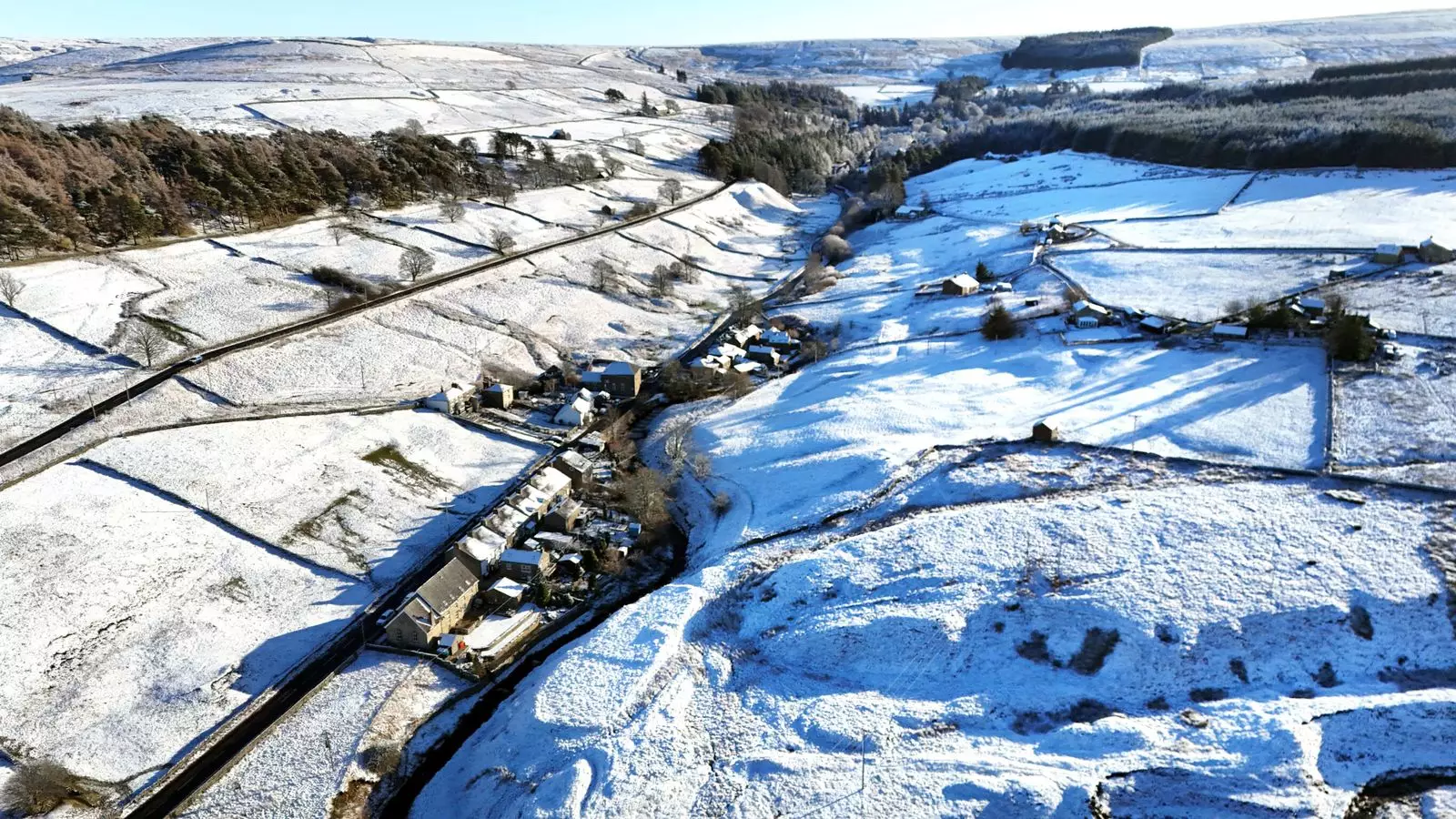As Britain braces itself for an unprecedented cold snap, temperatures are predicted to plunge to as low as -8°C, prompting severe weather warnings that will linger through the weekend. The UK Health Security Agency (UKHSA) has issued cold weather health alerts across England, highlighting the potential for increased mortality rates, particularly among vulnerable populations such as the elderly and those with pre-existing health conditions. Specifically, the amber alerts—which will remain in effect until the following Wednesday—signal a heightened risk of adverse health effects due to the plunging temperatures.
According to Dan Stroud, a meteorologist at the Met Office, the impending frost is expected to blanket the entire country, creating hazardous conditions from Land’s End to John O’Groats. Stroud’s insights underline the stark reality that these temperatures are considerably below seasonal averages, indicating a serious need for public vigilance as the weather turns frigid.
The chilling forecast varies significantly across the UK. On Thursday night, parts of Wales and southern England were expected to experience temperatures between -4°C and 5°C, while northern England and Scotland are set to bear the brunt with even harsher conditions. The Met Office has issued several weather warnings which outline the risk of snow and icy surfaces in northern and western regions, including a yellow warning that will remain effective until Friday morning. These warnings are not mere advisories; they serve as a critical reminder of the potential for travel disruptions and heightened risk of accidents.
In Herefordshire, local authorities have taken proactive measures to alert residents to the importance of preparedness during this weather event. Recommendations include ensuring adequate supplies of food and medication, as well as implementing measures to eliminate draughts in homes. Furthermore, councils in London have activated emergency accommodation protocols to provide shelter for rough sleepers, underscoring a recognition of the severe impacts that extreme weather can have on vulnerable populations.
In light of the impending dangers, the NHS Black Country Integrated Care Board has emphasized strategies for public safety. Residents are urged to limit outdoor activities during periods of thick frost and to be mindful of navigating their environments during darkness. The importance of wearing suitable footwear with a good grip cannot be overstated, as the icy conditions pose a significant risk for slips and falls. These health advisories mark a crucial intersection between weather events and public health measures, highlighting the need for community awareness and preparedness.
The Met Office’s predictions indicate that conditions could become milder towards the end of the weekend, yet a sharp return to freezing temperatures is anticipated early next week, particularly affecting Monday and Tuesday. This inconsistency presents additional challenges for residents and emergency services alike, as the fluctuating weather can complicate travel and response efforts.
The ongoing cold snap has been compounded by previous weather events, specifically heavy rainfall that caused severe flooding in Greater Manchester. The resultant evacuation of homes and closures of transport links is a stark reminder of the compounding effects of adverse weather events. The declaration of a major incident by police in Greater Manchester illustrates an urgent need for coordinated emergency response, particularly as the region prepares for additional snowfall over the weekend.
As snow accumulations of 5 to 30 centimeters are forecasted across various regions, local agencies must remain vigilant to respond to emergencies effectively. Winds strong enough to create snowdrifts and the potential for freezing rain add layers of complexity to an already precarious situation, necessitating continuous monitoring and advisement from meteorological services.
As the UK grapples with severe winter weather, it is crucial for residents to remain informed and prepared. The combination of freezing temperatures, snow, and ice presents real risks not only to individual health but also to overarching community functioning. As government agencies and local authorities mobilize their emergency resources, the onus also lies on citizens to heed warnings, take precautionary steps, and look out for one another in these challenging times. This cold snap serves as a reminder of the fragility of our infrastructure and the importance of community resilience in the face of adverse weather conditions.


Leave a Reply